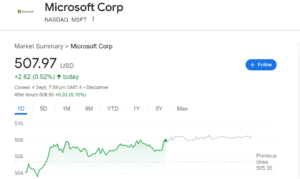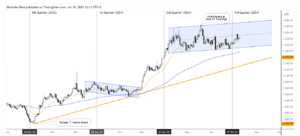Onboard with Assurance: PEP Screening for Business Triumph
Financial institutions such as banks and crypto exchange firms are at the forefront of the battle against money laundering and terrorist financing. The financial institutions must be equipped with tools like PEP Screening Software to win this battle. The Financial Action Task Force (FATF) has described Politically Exposed Persons (PEPs) as prominent individuals or people who are close associates, powerful individuals from senior management, or someone who held an important position, for instance, directors, board members, politicians or anyone of similar influential ranking.
Individuals functioning at such powerful positions are more vulnerable to committing bribery and corruption which can further lead to financial crimes such as money laundering and terrorist financing. Therefore financial institutions like banks, investment firms, insurance companies, etc must employ a risk management strategy and screen these Politically Exposed Persons (PEP) against the PEP Lists.
Non-compliance with regulatory requirements such as PEP list screening set by the regulatory authorities causes the financial sector to lose $4,005,116 in returns every year. The corporate sector loses more than double the profits for not complying with regulations that are put in place to protect themselves and their employees from severe financial penalties.
PEP Screening Guide
Financial institutions like brokerage firms, banks, credit unions, mortgage companies, investment banks, insurance firms etc are mandated to comply with Anti-Money Laundering (AML) regulatory measures like PEP checks set by government agencies, international organizations and regulatory bodies by conducting Enhanced Due Diligence (EDD) while onboarding their clients before developing a business relationship to mitigate the risks of financial crimes like corruption, bribery, corporate frauds, embezzlement of government funds, money laundering, terrorist financing and so forth.
Verification of Identity and Risk Management:
PEP Screening protocols included identifying the Politically Exposed Persons (PEPs) using a specialized PEP database released by government agencies and regulatory bodies around the world. Private enterprises publish more comprehensive information on Politically Exposed Persons (PEP). This screening must be done periodically by following Enhanced Due Diligence protocols even when the client is registered and the business relationship is established for years. The financial institutions are advised to have a risk based approach and also screen the close associates and relatives of powerful individuals who held influential positions for years. There’s always a chance that close associates and relatives of PEPs can benefit from the influence of PEPs’ wide political influence. For example, Malaysia’s biggest money laundering scandal also involved Riza Aziz, the stepson of Malaysia’s Former Prime Minister Najib Razak. Riza Aziz was found in the embezzlement of millions of Malaysian state funds, which were received in his Swiss accounts. Therefore,
Enhanced Due Diligence:
Financial firms are obligated to conduct enhanced due diligence and closely monitor the financial activities of their PEP clients scrutinizing their source of wealth and assessing the motivation of transaction and account opening
On-going Monitoring:
Firms must update the risk assessment of their PEP clients regularly by assessing their adverse media screening results. They are also advised to obtain formal approval from the top executives before updating the risk status of their PEP clients. Records of their PEP clients must be carefully kept and maintained even after the business relationship no longer exists.
Reporting of Financial Crimes:
Financial firms must report any Suspicious Activity Report (SAR) of their PEP clients immediately to the regulatory authorities and law enforcement agencies. Non-compliance to this particular rule can result in billions of dollars in legal penalties. Financial institutions can face hefty fines for the crimes of the clients. One recent example is the Jeffrey Epstein scandal in which Deutsche Bank got embroiled and had to pay 75 million in settlement in a sex trafficking lawsuit. The bank faced accusations for not reporting the suspicious activities of Jeffery Epstein and facilitating his criminal activities.
Today’s financial landscape is heavily equipped with stringent Anti Money Laundering (AML) regulations. Therefore, financial institutions now have huge consequences for enabling the crimes of their clients. Gone are the days when banks used to get away with the compliance regulations. Now they are left with no choice but to comply with regulatory requirements or face the music.
All firms are mandated to monitor the fiscal activities of their customers and immediately file a Suspicious Activity Report (SAR) if they observe any dubious criminal activity. Failing to do so may result in astronomical financial fines by the regulatory authorities. Businesses can face fines for the actions of their customers. Therefore, they must have PEP Compliance Programs in place to have a risk-based approach.
As for the corporate world, the encouraging news is that various automated PEP screening solutions are easily accessible in the FinTech markets around the world. These compliance tools provide automated PEP screening software. The onus is now on the businesses to either pay the massive costs of legal penalties or pay the cost of compliance.

















